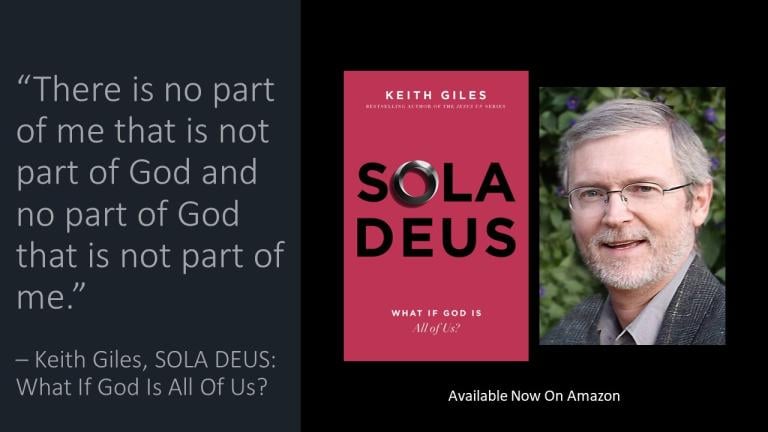
After working with over a hundred people who are deconstructing their faith over the last 4 years, I’ve noticed something I think needs to be called out.
When former Evangelicals start to deconstruct their faith, they tend to go through a few stages. I’d say it’s fairly common that one of the first early stages is protection. This is where the person deconstructing experiences so much angst and mental/emotional/spiritual suffering as the result of deconstruction that they sincerely want to protect their family and friends from going through the same level of pain.
I can remember back when I first started the Square 1 course/community, one of the guys in the group, Mike, expressed a concern that his children might discover he’s deconstructing and he was afraid to expose them to the same level of anxiety he was enduring as he deconstructed. I thought that was sweet, and very noble and admirable of him. Rather than trying to prove to everyone around him that he was right and they were wrong about theology, he was more concerned about inflicting the same sort of pain he was experiencing.
But, later, as people continue on into their deconstruction journey, another stage people go through is an overwhelming feeling of sincere freedom and joy. Once they are totally done with holding on to a version of God that is wrathful, angry, vindictive, judgmental and tortuous, they begin to relax and rest into the reality that God really is like Jesus: forgiving, loving, kind, considerate, humble, and merciful. Once they’ve truly moved beyond the Monster God belief system, they genuinely appreciate their deconstruction journey. That’s where the problems begin for many of us.
See, when we finally reach the stage where we’re happy to be outside of the worm theology bubble, we can start to feel the need to bring our friends and family members along with us. In other words, that initial impulse to protect our family and friends from the pain of deconstruction turns into a strong desire to help them experience the liberation we’ve experienced on the other side of deconstruction. We forget how painful it was to go through that season of doubt, and uncertainty.
Most importantly, we forget that no one pulled us or forced us into our own deconstruction journey. It wasn’t because someone sent us a book or forwarded a blog post article. We didn’t deconstruct our faith because someone argued us into questioning what we believe. No, we started asking those questions and having those doubts all on our own. Or, if you want to get spiritual, it was the Holy Spirit who opened our eyes to see the glaring inconsistencies of our toxic theology.
Bottom line: No one can make someone else deconstruct their faith. It has to be a genuine doubt or question in the heart of each individual that sets everything in motion.
So, I felt the need to write about this trend because, lately, I’ve started to notice a lot of my deconstructing friends are seemingly interested in evangelizing their Evangelical Christian family members and friends. Their hearts are in the right place: they want their loved ones to experience the same freedom they now have when it comes to the fear of hell or the wrath of God. They want to share something that – for them – has been liberating and beautiful in their own personal, spiritual journey. But, this good intention only leads to greater conflict in those relationships.
In the same way you and I don’t appreciate the emails and links to John Piper or John MacArthur videos, or quotes from Mark Driscoll or Alisa Childers, our Evangelical family and friends really don’t want to receive your Richard Rohr memes, or David Hayward cartoons.
I recently was on a Zoom call with some deconstructed people who were sharing how they really wished their Evangelical friends could escape what they perceive as empty religious practices based on fear, shame and guilt. Their hearts were in the right place, of course. But I couldn’t help but want to ask them, “What if your friends really enjoy those practices?”
I mean, sure, we see those religious activities as empty and pointless. We feel that they need to be set free from the need to pray the right way, or to engage in certain religious routines, in order to receive God’s love, or forgiveness, or acceptance. And we may be right about that assessment. But, what if our friends really get a lot out of those practices? What if those practices and routines are the only way they can access God’s love, or forgiveness or mercy right now? Why would we take that away from them? Is it because we want them to admit that we’re right and they’re wrong? Is it because we want them to be more like us?
Even if our motives for wanting to “convert” our Evangelical religious friends and family members away from their fear-based religious beliefs are pure, the simple fact of the matter is: we can’t change them.
So, a question we might ask ourselves is this: “Can we love our Evangelical family members and friends, even if they never deconstruct their beliefs?”
We have probably wanted to ask our Evangelical friends if they could love and accept us if we never return to their point of view. But it’s a valid question for us to ask ourselves about them.
I sincerely believe it’s possible for us to love one another, and accept one another, even if we never come to see or believe the same things about theology.
What’s needed is for all of us to learn to love one another for who we are – no matter what we believe or don’t believe about God, the Bible, or politics, or sports.
If our love is only based on agreement, then maybe we need to take a closer look at our definition of love.
Because there’s really nothing great about conditional love. Love with conditions is sort of one of those things we’ve tried to deconstruct along the way, isn’t it?
So, maybe the real test for us is this: Can we learn to love everyone – even our Evangelical family and friends – if they never change their minds about theology?
Can we love without conditions?
Can we just love?
That’s the biggest question of all.
**

NEW ONLINE COURSE
Join me for a new 3-week online course based on my best-selling new book, SOLA DEUS. Class begins Monday, Sept. 11th, 2023. But, if you register today you’ll get a ten percent discount.
HURRY! This offer ends soon.
Keith Giles is the best-selling author of the Jesus Un series. He has appeared on CNN, USA Today, BuzzFeed, and John Fugelsang’s “Tell Me Everything.” He hosts the Second Cup with Keith podcast, and co-hosts the Apostates Anonymous podcast, and the Heretic Happy Hour Podcast.
Find out more about online courses HERE>













